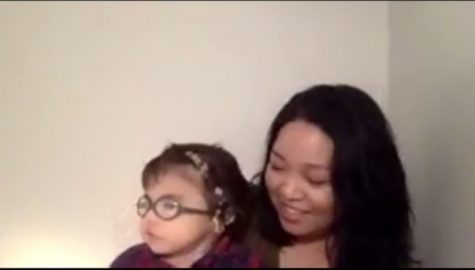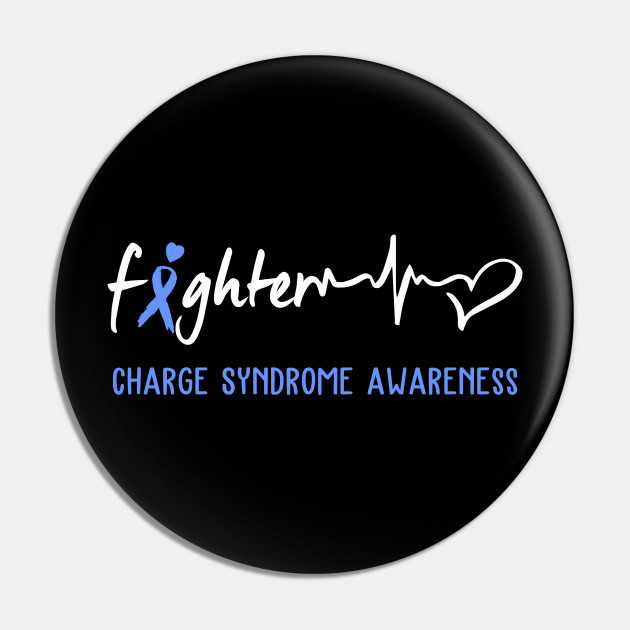#ChargeOnFinn
CHARGE Syndrome
March 4, 2021
According to the National Organization for Rare Disorders, CHARGE syndrome is a rare genetic disorder that arises during early fetal development and affects multiple organ systems. It affects 1 in 150,000 births worldwide and is an extremely complex syndrome which often involves:
Coloboma,
Heart defects,
Atresia of the nasal choanae,
Restriction of development,
Genital abnormalities, and
Ear and hearing abnormalities.
CHARGE syndrome is caused by having a new mutation in the CHD7 gene. To get tested for CHARGE, blood is drawn and from there, doctors will examine the gene sequence in the DNA for the presence of mutations in the CHD7 gene.
I was able to interview Kristine Gargiulo and her 4-year-old son, Finn Gargiulo, who was diagnosed with CHARGE syndrome. When Finn was born, Kristine and her husband noticed that Finn’s ears were deformed which prompted them to do genetic testing. When Kristine and her husband heard the news for the first time they were devastated because they didn’t know how it was going to affect their son or his future.
When Finn was first diagnosed, Kristine and her husband didn’t know what it meant or what to expect since CHARGE is rare and neither of their family members carried the gene. For the first 3 years, Finn had to see a doctor at least 4 times a week and sometimes he had 3 appointments a day. In addition, Finn had to attend therapy 7 times a week. When Finn aged out of early intervention, he was able to have less appointments but his therapy sessions still involve PT (physical therapy), OT (occupational therapy), and ST (speech therapy), as well as sessions with a TOD (Teacher of the Death) in order to work on his hearing ability. Many of these services are offered through his school which puts less stress on his parents . Finn has and allows him not to miss out on all that school has to offer.
Finn has developmental delays, deaf-blindness (rare condition in which an individual has combined hearing and vision loss), facial paralysis, small semicircular canals which affects his balance and walking. To aid in his development, Kristine and her husband decided it would be best for Finn to have a cochlear implant. According to John Hopkins School of Medicine, a cochlear implant is a small electronic device that electrically stimulates the cochlear nerve (nerve for hearing). The device can help to provide a sense of sound to a person who is profoundly deaf
or severely hard-of-hearing. Even though Finn has a cochlear implant, he is still learning ASL(American Sign Language) in school.
This journey has been emotionally and mentally difficult for Finn and his family but they continue to push forward. Although faced with many challenges Kristine knows that her son has great potential and will be successful in his own way thanks to all the love and support he receives. As any other 4-year-old kid, Finn is learning his shapes, numbers and colors (and more) but his parents are primarily focused on his health. They try to teach him basic life skills one step at a time so that he doesn’t always have to depend on someone when he’s older.
Understandably, Finn doesn’t learn too much about STEM at his school, but with a father who is an aerospace engineer and a mother who is a sociologist, he has certainly found his love for science. At home, they like to do science experiments, talk about NASA, watch anything that involves space, and discuss the importance of science and technology. Kristine mentions that before the pandemic, they had membership for the Liberty Science Center, but the pandemic has limited the places they can go to enjoy all things science. But of course that doesn’t stop them from having some science fun! They have a subscription for STEM products and are able to use them for their at home experiments. Two of Finn’s favorite experiments that he did with his family was creating a volcano and building their solar system. In addition to being a mini scientist, Finn also enjoys reading and attending his online music classes.
Something that Kristine wants everyone to know about her son Finn is that he may not be a typical kid but he is certainly a very cool kid. His family is grateful to be able to have Finn in their lives. They are also appreciative about the technological and medical advances that continue to improve Finn’s quality of life.
We at the Science Star wish Finn, and all children with CHARGE syndrome, nothing but success and hope he continues to impact the word.




